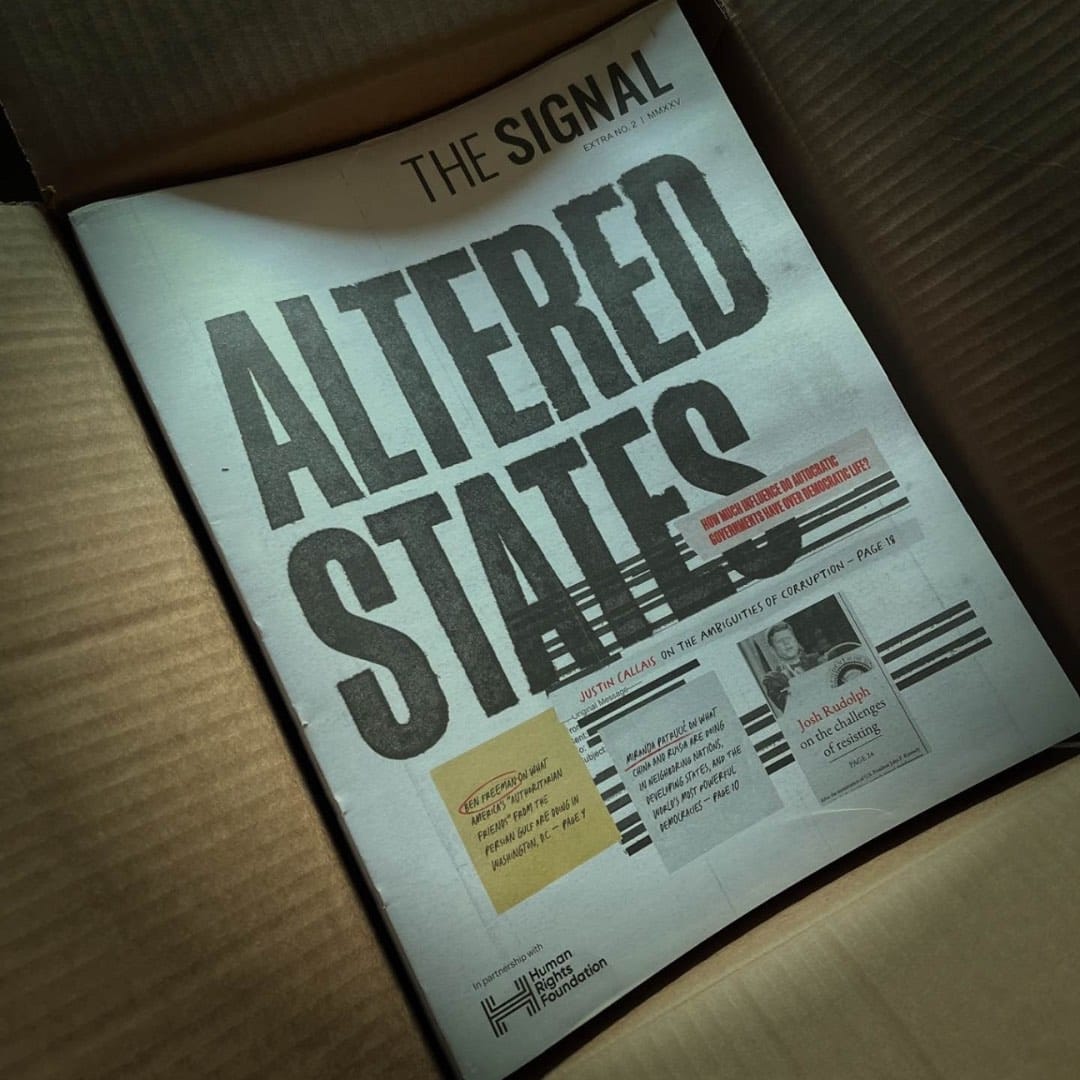The replacement lawyer

Recently: What happened to the Chinese dream? Yi-Ling Liu on declining opportunities, increasing malaise, and a waning of ambition in the People’s Republic.
Today: A new prosecutor indicts a former FBI director under strange circumstances. Moldova braces for a Russian-influenced vote as police arrest 74 on a riot plot. & Trump's TikTok “victory” leaves a Chinese algorithm—and Chinese influence—intact.
& The weekend despatch …
Developments
- A U.S. federal grand jury has indicted the former FBI Director James Comey on charges of making false statements and obstruction of justice related to 2020 Senate testimony. The prosecutor previously in charge of the case had declined it for lack of probable cause. … See “The case for the prosecutions.”
- Moldova is preparing for a big parliamentary vote, scheduled for Sunday, September 28, amid Russian interference warnings. The election will test whether the pro-EU government retains power or the pro-Russian opposition takes control. Police arrested 74 people on Monday who allegedly planned to instigate mass riots and destabilize the country. … See “Rock the vote.”
- U.S. President Donald Trump signed an executive order Thursday approving a deal that transfers majority control of TikTok’s U.S. operations to American investors for $14 billion, while ByteDance retains licensing rights to its algorithm and will receive roughly 50 percent of future profits.
- A few details to know: TikTok will maintain ByteDance’s algorithm, ByteDance will maintain licensing rights to it, and of course the Chinese Communist Party will maintain control over ByteDance.
- Trump is meanwhile mandating that the U.S. government collect billions of dollars in fees from the new American investors as a condition of the deal—while declaring victory over all the Chinese the influence that national security officials, critics of TikTok generally, and, at times, the president himself, have argued TikTok represents. Money’s changing hands, in other words, but it seems the machine will keep on running as before. … See “Black box.”

Our second limited-run print magazine, Altered States, runs down the question of the influence dictators have over democratic life in the world today.
This edition, produced in partnership with the Human Rights Foundation, features conversations—with Ben Freeman, Miranda Patrucić, Justin Callais, and Josh Rudolph—on how authoritarian states build political influence in the U.S., why dictators keep disrupting so many other countries, why autocratic corruption is such a problem for democratic life, and what democracies can do about it.
Currently available in the U.S.A. To register interest in ordering internationally, or with any questions, please be in touch: concierge@thesgnl.com.
In the weekend despatch
The world in brief
- Want to lay criminal charges against a political enemy when a career prosecutor says there isn’t enough evidence? No problem.
- Is free speech in America under “unprecedented” attack?
- & What’s the point of flying jets and drones into countries you’re not at war with—when you’re in the middle of a war?
- The question of recognizing a Palestinian state in 2025
- A look at the practicality of lecturing allies on committing civilizational suicide and the UN being a joke
- & Moscow’s big influence campaign in tiny Moldova
Weather report
- Typhoon Ragasa in Southeast Asia
+ Cultural intelligence
- Where is Ukraine? And why is the idea of “Central Europe” so important to so many political leaders east of the West? Luka Ivan Jukic, Central Europe: The Death of a Civilization and the Life of an Idea.
- New music from Salif Keita
- & What’s a calabash? … or a ngoni?
Your loyal guide to a changing world.
Membership with The Signal means exclusive access to premium benefits:
- Regular profiles on the questions behind the headlines
- In-depth feature interviews with our network of specialist contributors from across America and around the world
- The despatch, our weekly current-affairs and cultural-intelligence briefing
- Early access to new products, including print extras
It also means vital support for an independent new enterprise in current-affairs journalism.
‘Yamore (Acoustic)’
Salif Keita, the “Golden Voice of Africa,” is now 76—and still working, because he still loves it. Here, Keita revisits one of his biggest hits, a love song from 2001—originally a duet with the Cape Verdean singer Cesária Évora—in a scaled-down, unplugged performance.
If you remember So Kono, which we brought you here back in April, this is on the same wavelength—just Keita, his acoustic guitar, and two backing musicians, one on a calabash, the other on a ngoni.
A calabash and a ngoni—what are those?





